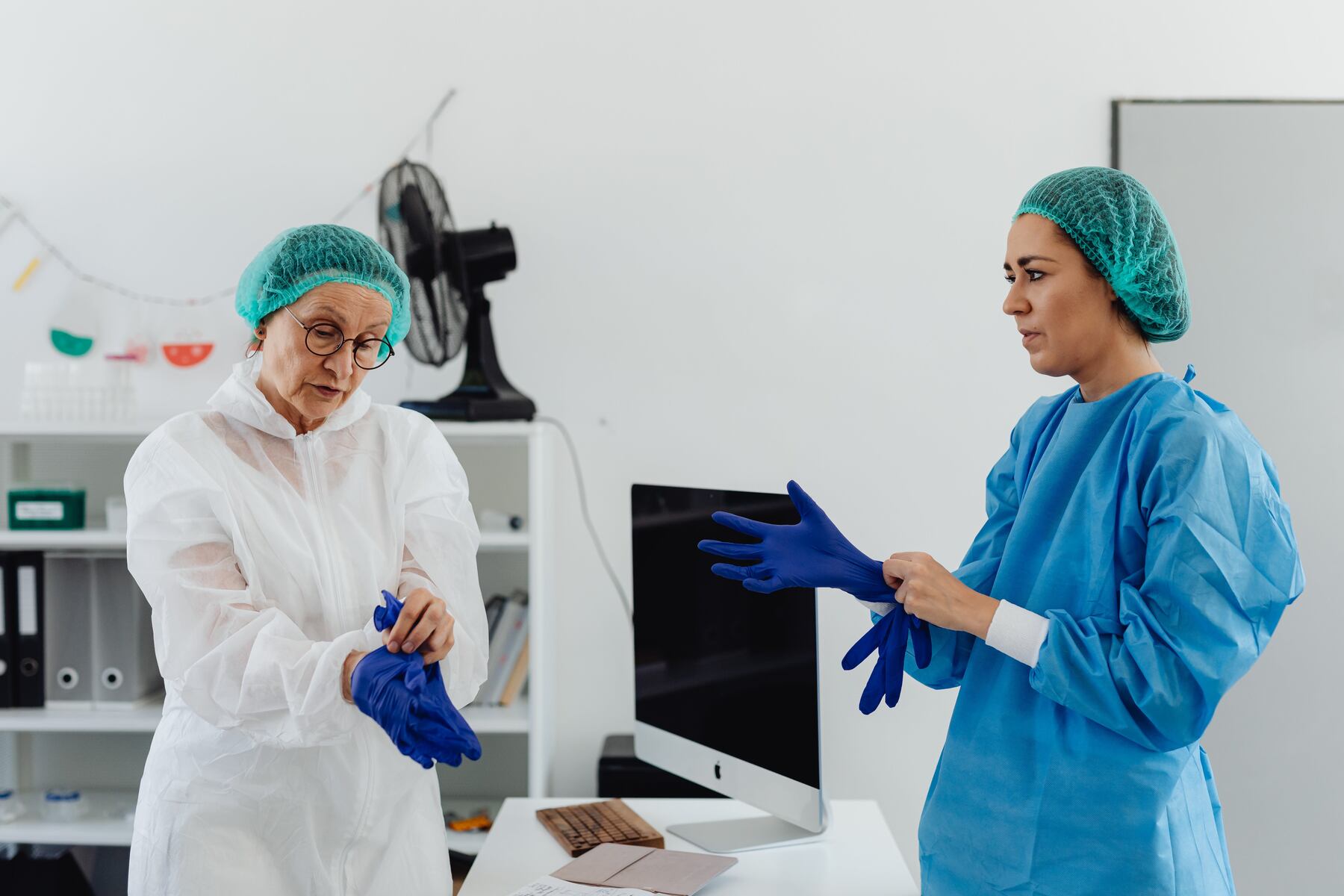Without properly mapping out the pathway, students risk wasting time or missing key requirements that could derail their dreams of becoming medical professionals. Unlike other careers that only require a few years of schooling, you really need to understand the time commitment and what it takes to have a successful medical career. Here’s a guide to navigating the path to a career in medicine.
Navigating the Path to a Career in Medicine: What to Expect
Pursuing a career in the medical field requires obtaining an undergraduate degree, graduating from medical school, completing residency, passing licensing exams, and developing the technical skills and practical medical experience needed for the job. You should also consider gaining soft skills and networking opportunities.

Medical careers require an unwavering commitment to service, a profound understanding of science, and the emotional resilience to handle patient care challenges. Missteps can result in lost time, wasted resources, and missed opportunities to improve one’s skills and medical knowledge.
| What to Expect | Details |
| Job outlook | Research employment projections for different specialties Consider factors like work-life balance, salary, competitiveness |
| Educational pathways | Earn bachelor’s degree with prerequisite courses Attend and complete four years at an accredited medical school (MD or DO) |
| Medical experience | Volunteer or work in healthcare settings Shadow physicians in specialties of interest Complete clinical rotations in med school |
| Licensing and residency | Pass USMLE or COMLEX licensing exams Apply to residency programs and go through the Match Complete residency training (three to seven years) in a specialty |
| Professional advancement and networking | Develop mentor relationships Seek leadership opportunities in med school/residency Attend conferences and engage in professional organizations |
| Technical, practical, and soft skills | Hone clinical knowledge and technical skills Develop strong communication, empathy, problem-solving |
Job Outlook
A career in medicine offers a range of opportunities and challenges, with the demand for healthcare professionals often influenced by various factors such as population growth, technological advancements, and healthcare delivery models.
Medical Specialties
An aspiring physician can choose from multiple specialties, each with its employment prospects. For example, the demand for geriatricians might increase due to the aging population, while technological advances may boost the need for radiologists or telemedicine specialists.
- Family medicine: Steady demand due to the ongoing need for general healthcare.
- Surgery specialties: Higher earning potential yet may have a more competitive job market.
Roles of Healthcare Teams
Healthcare extends beyond physicians, encompassing many healthcare teams, including nurses, physician assistants, and therapists.
- Nurses: High demand across various settings.
- Allied Health Professionals: Growing needs in areas like physical or occupational therapy.
Employment and Salaries
Physicians typically earn a substantial income, which varies significantly by specialty, location, and experience.
- Primary care: Average salary may be lower, although employment opportunities are abundant.
- Specialists: Generally higher salaries, with some fields such as cardiology and orthopedics leading in compensation.

Competition and Job Searching
According to the Bureau of Labor Statistics, overall employment in healthcare occupations expects rapid growth from 2022 to 2032. This includes a projected 1.8 million openings annually.
- Urban versus rural: Greater competition in urban areas compared to rural areas, which often have a high demand for medical professionals.
- Residency: A strong performance and professional network can improve job opportunities.
Educational Pathways
The journey to becoming a doctor is structured and highly demanding, requiring specific educational milestones.
- Undergraduate requirements: There are several degree options for medical school. Undergraduate students aiming for medical school admission need to meet prerequisite coursework and excel academically. The coursework typically includes a strong foundation in sciences and a high overall GPA.
- Extracurricular Activities: It’s highly recommended for students to participate in healthcare-related experiences such as volunteering, research, and shadowing medical professionals.
- MCAT: Prospective students must take the Medical College Admission Test (MCAT), which assesses knowledge of scientific concepts and critical thinking.
- Application: Students must compile a comprehensive application that includes their MCAT scores, letters of recommendation, personal statements, and a record of extracurricular activities.
Medical Experience
Gaining practical medical experience is a vital step for any individual considering a career in medicine. It enriches your understanding of the medical field while gaining essential exposure to real-world clinical settings.
- Volunteering and shadowing: In hospitals, volunteering might include supporting staff, interacting with patients, or assisting in non-medical ways. Shadowing a physician allows observation of daily routines, patient interactions, and exposure to different medical specialties.
- Research and internships: Research internships may involve working on specific medical studies, which helps in understanding the process of scientific inquiry. Meanwhile, clinical internships offer a closer look at patient care and afford the chance to assist in medical procedures under supervision.
Licensing and Residency
After medical school, a doctor must obtain a medical license and complete a residency to practice independently. It will take a long time to become a doctor. These are critical steps in a physician’s career that ensure a high standard of patient care and expertise in one’s chosen specialty.

Medical Licensing Examination
Physicians must pass the United States Medical Licensing Examination (USMLE), a three-step exam for medical licensure.
- Step 1: Basic science knowledge is critical to the practice of medicine.
- Step 2: Divided into Clinical Knowledge (CK) and Clinical Skills (CS), assess the ability to apply medical knowledge and patient care.
- Step 3: Patient management and the use of knowledge in a real-world practice setting.
Residency Matching Process
The process of matching with a residency program is known as the National Resident Matching Program (NRMP) or “The Match”.This highly competitive process determines where a medical graduate will train in their chosen specialty, ranging from three to seven years depending on the field.
- Medical graduates submit their list of preferred hospital programs.
- Programs similarly rank the candidates they have interviewed.
- A computer algorithm then matches students and programs based on their mutual rankings.
Residency Training Overview
Residency is hands-on training in a medical specialty under the supervision of experienced physicians, unlike the mostly theoretical knowledge of medical school.
- Residents are responsible for patient care while they learn specialized skills.
- Progression to more complex responsibilities happens as they demonstrate competency.
- Residency programs differ by specialty yet are designed to mold competent, independent practitioners capable of ensuring high-quality patient care.
Professional Advancement and Networking Opportunities
In any field of work, we emphasize the importance of professional advancement through continuous learning and meaningful networking. Aspiring medical professionals can actively seek educational opportunities, stay abreast of emerging technologies, and engage in specialized communities to thrive.
- Continuing education: Medical professionals can regularly engage in continuing education (CE) to maintain their licensure and stay updated with the latest medical knowledge.
- Certifications: These certifications often denote expertise in particular areas of medicine and can be obtained through accredited organizations.
- New technology or techniques: Attending workshops or hands-on training sessions allows practitioners to enhance their skill sets and offer cutting-edge care.
- Fellowship: A fellowship provides in-depth training and is a pathway to becoming a specialist.
- Specialization: Specialists have the opportunity to become authorities in their niche, contributing to significant advancements in that area.
- Research and conferences: These activities help healthcare professionals network and can often lead to collaborative opportunities and career development.

Technical, Practical, and Soft Skills
Pursuing a career in medicine requires a complex set of skills that you can refine. A blend of technical knowledge, practical experience, and interpersonal abilities are essential for servicing clients or patients.
- Technical skills: Technical skills in medicine relate to the specific medical knowledge and the capabilities necessary to perform clinical tasks. Candidates must develop a strong foundation in areas like anatomy and physiology, biochemistry, diagnostics, and procedural skills.
- Practical skills: These skills involve the direct patient application of medical procedures. They encompass patient examination and assessment, surgical techniques, emergency response, and management.
- Soft skills: A 2021 editorial in the Journal of Patient Safety states that communication errors cause 70% of adverse events in healthcare settings. Empathy, compassion, communication, and teamwork are the intangible attributes that enhance a healthcare professional’s ability to interact with patients and colleagues.
- Professional skills: These skills are central to maintaining public trust and adapting to the ever-changing medical landscape. Ethical decision-making and integrity, a capacity for lifelong learning, time management, and adaptability will help you thrive in this field.
Related Questions
Why Do You Need to Understand Health Career Pathways?
Understanding the complex and diverse career pathways in healthcare allows you to align your education, skills, and interests with the appropriate medical profession. In this way, you embark on a career that suits your aspirations and meets healthcare demands.
What Is the Biggest Challenge of Pursuing a Career in Medicine?
The most formidable challenge to pursuing a medical career is often the rigorous education and training required. Aspiring medical professionals must commit to many years of intense study, examinations, and usually high competition in academics to secure residency placement.
What Should I Do to Explore the Different Health Careers?
Individuals should actively seek out resources and opportunities for experience, such as shadowing doctors, engaging in pre-med programs, or utilizing platforms designed to inspire and inform future doctors. Hands-on experience is vital for understanding the day-to-day realities of various healthcare positions.
Conclusion
Embarking on a medical career is an ambitious journey with challenges and unparalleled rewards. Potential careers range widely, each demanding high dedication and expertise. Success in this field requires attaining knowledge and skills and compassionate application of that knowledge to serve and improve patients’ lives.


